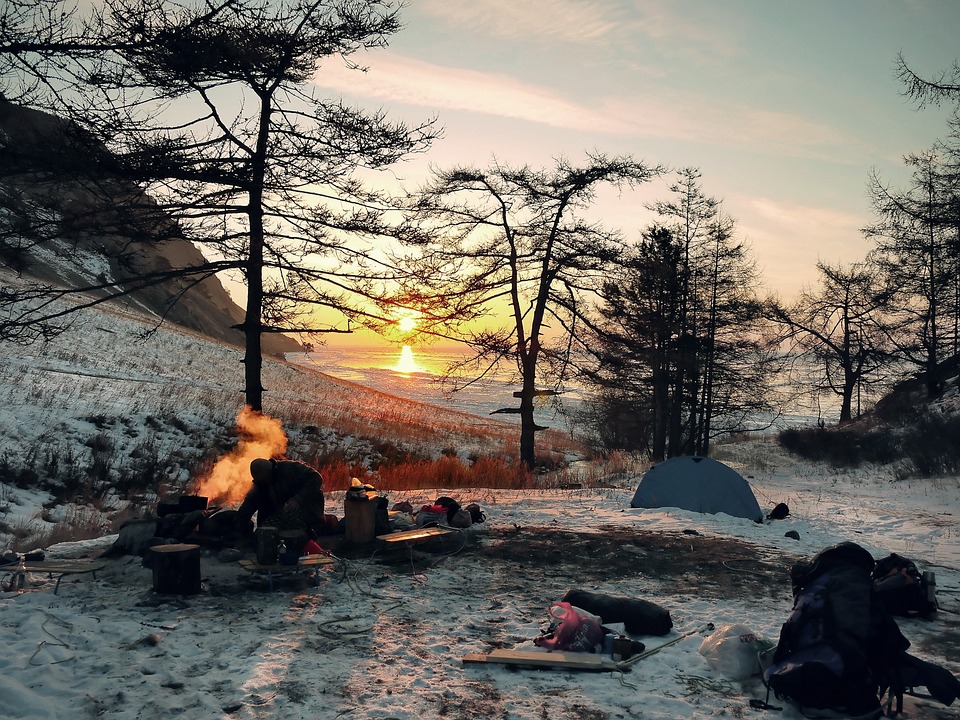Table of Contents
Introduction
Cold weather camping provides a unique opportunity to embrace the chill and connect with nature in a way that summertime camping cannot.
While it may seem daunting to venture into the chilly outdoors, with proper preparation and a sense of adventure, cold weather camping can be an incredibly rewarding experience.
This article will explore the benefits of cold weather camping and provide valuable tips for a safe and enjoyable camping trip during the winter season.
The Benefits of Cold Weather Camping
Cold weather camping offers a range of benefits that are distinctive from warm weather camping.
Firstly, the winter landscape provides a serene and picturesque backdrop for outdoor activities.
Snow-covered trees, frozen lakes, and crystal-clear skies create a breathtaking environment that cannot be replicated in any other season.
Additionally, cold weather camping allows for a unique connection with nature.
The absence of large crowds and the serene atmosphere offer peace and solitude that is not always possible during peak camping seasons.
The stillness allows campers to truly appreciate and absorb the beauty of their surroundings.
Furthermore, cold weather camping can challenge campers both mentally and physically.
The colder temperatures require proactive preparation and problem-solving skills.
This type of camping builds resilience and self-reliance, as well as providing a sense of accomplishment when overcoming the challenges that winter presents.
Tips for Cold Weather Camping
Proper preparation is crucial for a successful cold weather camping trip.
Here are some essential tips to keep in mind:
Gear and Clothing
Pack appropriate gear and clothing to keep warm and dry.
This includes a four-season tent, a warm sleeping bag, adequate insulation, and moisture-wicking layers.
Don’t forget to pack extra socks and hats.
Campsite Selection
Choose a campsite that offers protection from wind and potential hazards.
Look for areas with natural windbreaks or set up near trees and large rocks.
Avoid camping near water bodies that may freeze and present safety risks.
Building a Fire
Learn how to build a fire in winter conditions.
Carry waterproof matches or a lighter and opt for dry firewood or use a stove specifically designed for cold weather use.
Hydration and Nutrition
Stay properly hydrated and nourished during cold weather camping.
Water sources may be frozen, so pack an insulated water bottle and bring plenty of high-energy foods to keep your body fueled and warm.
Safety Measures
Ensure you have a first aid kit, emergency contact information, and knowledge of basic winter survival skills.
Familiarize yourself with potential winter hazards such as hypothermia and frostbite, knowing the symptoms and how to respond in case of an emergency.
Layering and Ventilation
Layer your clothing to regulate body temperature and manage moisture.
Wearing multiple layers allows you to adjust your clothing according to your activity level and changing weather conditions.
Opt for breathable materials and open vents in your clothing to prevent sweating and subsequent chilling.
Mental Preparation
Prepare mentally for the cold weather camping experience.
Embrace the challenges and focus on the rewards of being immersed in nature during this unique season.
Keeping a positive mindset will help you adapt and enjoy your cold weather camping adventure.
FAQs
Q: Is cold weather camping safe?
A: Cold weather camping can be safe if you are adequately prepared and take necessary precautions.
It is essential to research and educate yourself about winter camping techniques and safety measures.
Q: What are the main risks and challenges of cold weather camping?
A: The main risks of cold weather camping include hypothermia, frostbite, and slipping on icy surfaces.
Additionally, winter storms can create hazardous conditions.
However, with proper preparation and knowledge, these risks can be mitigated.
Q: Can I use my regular camping gear for cold weather camping?
A: While some of your regular camping gear may be suitable, it is essential to have gear specifically designed for cold weather conditions.
Insulated sleeping bags, four-season tents, and appropriate clothing are essential to stay warm and safe.
Q: How can I stay warm during the night?
A: To stay warm during the night, ensure you have a high-quality sleeping bag rated for the expected temperatures.
Add extra insulation by using a sleeping pad or an underquilt if you’re using a hammock.
Wear appropriate clothing and use hand warmers or heated blankets if needed.
Q: What activities can I enjoy during a cold weather camping trip?
A: Cold weather camping opens up opportunities for various activities such as snowshoeing, ice fishing, cross-country skiing, and winter hiking.
These activities allow you to fully embrace the beauty and serenity of the winter landscape.





